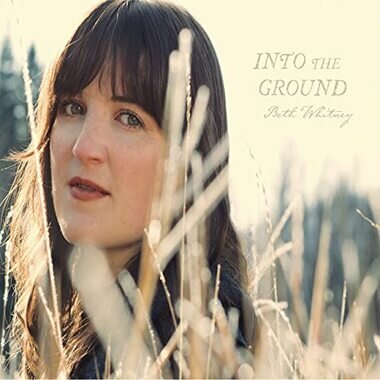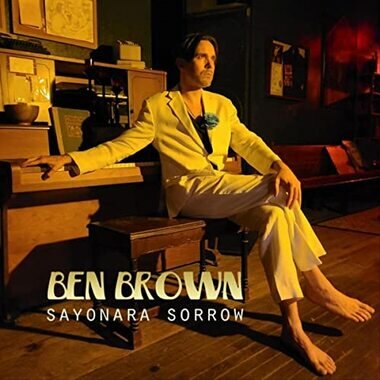
In the U.S., Lulu was pretty much a one-hit wonder. She topped American charts for five weeks with the terrific “To Sir with Love,” one of the most likable mainstream hits of 1967 (and one of the best-orchestrated pop records of its era, right up there with the Temptations’ “Just My Imagination (Running Away with Me)” and Bobbie Gentry’s “Ode to Billie Joe”). Three of her other singles made minor dents in the Top 40 in 1968, 1970, and 1981, but they rarely receive any airplay today.
On the other side of the pond, though, the story has been quite different. There, “To Sir with Love” was just a B side, not a hit at all, which explains why it isn’t even among the songs mentioned on a sticker on the shrink-wrap of Gold, a new U.K. anthology that is available stateside as an import. However, the Scottish singer has had much more of a career in England than in the U.S. Besides hosting several popular television series, she has made more than two dozen forays into the singles charts, scoring eight Top 10s and major hits in every decade from the 1960s to the 2000s. You’ll find all of those singles plus “To Sir with Love” and a whole lot more on the three-CD Gold, which embraces 60 recordings made from 1964 to 2015.
Lulu’s material is mostly excellent and certainly diverse. She covers pop numbers from the likes of Gerry Goffin and Carole King, the producer Bert Berns, and Neil Diamond, then turns around and takes on songs from Bob Seger, the Rolling Stones, and even David Bowie. She also performs a half dozen originals and three numbers from the Bee Gees (not surprising, given that Lulu was married to that group’s Maurice Gibb for about four years).
Her versatility is impressive—she can sound like Dionne Warwick one minute and like a garage rock vocalist the next—but she generally does best when she sticks to pop. Her vocals shine, for example, on Berns’s “Here Comes the Night,” the Van Morrison/Them number, and on Tim Rose’s “Morning Dew,” but a cover of Bowie’s “Watch That Man” is pretty awful.
A career-spanning retrospective this definitive should have been accompanied by a booklet that features detailed biographical and track information, but this release incorporates no notes at all and, in fact, includes only one B&W photo, which appears twice. Oh, well. It’s the music that matters most, and this set delivers all you need to get the full Lulu experience.
P.S. to fans of the Bangles’ Susanna Hoffs and/or “To Sir with Love”: check out the excellent cover of that song on Hoffs’s eponymous 1996 album.
Also Noteworthy

Shannon McNally, The Waylon Sessions. Vocalist Shannon McNally conveys the outlaw country attitude of the late Waylon Jennings while adding a feminine perspective on the spirited The Waylon Sessions, which features such guests as Buddy Miller, Rodney Crowell, Jennings’s widow Jessi Colter, and Lukas Nelson (who sounds here uncannily like his dad, Willie).
The 13-track program embraces such well-known Waylon compositions as “I’ve Always Been Crazy,” “This Time,” and “You Asked Me To” (the latter coauthored by Billy Joe Shaver), plus a variety of other songs that Jennings covered, including Shaver’s “Black Rose” Ray Pennington’s “I’m a Ramblin’ Man,” Ivy Bryant’s “Only Daddy That’ll Walk the Line,” and Crowell’s “I Ain’t Living Long Like This.”

Beth Whitney, Into the Ground. If some albums shout their messages from a mountaintop, this one whispers its dispatches from a peaceful valley. Though more lushly produced than Nick Drake’s LPs, Whitney’s record is just about as subdued.
The lyrics are introspective. (Explaining the album’s title, she says, “On [my last album] I was looking outward at the world around me. On the new album, I am looking into the soil…Soil is complex and so are we.”) The songs—which feature acoustic guitar, bass, piano, and judiciously employed cello, ukulele, banjo, and percussion—variously express joy and sadness; but all of them radiate a sense of calm, gentleness, and acceptance.
Whitney—who hails from Washington state and has been releasing albums since 2007— composed 10 of the 11 folk-based numbers, one with a cowriter; the sole cover is “Shelter from the Storm,” the song from Bob Dylan’s Blood on the Tracks that best suits the mood here. (It’s impossible to imagine Whitney tackling one of that record’s more venomous selections—“Idiot Wind,” for example.) The Dylan number stands out but so do such sweet, lilting originals as “Moonlight,” “Huckleberry,” and “In Another Life.”

Ben Brown, Sayonara Sorrow. Ben Brown—the longtime singer/guitarist for the Austin, Texas rock band No Show Ponies— serves up 10 doses of radio-ready pop-rock on the solo Sayonara Sorrow, which features backup from a small group that includes No Show Ponies’ Jefferson Brown (Ben’s brother) on bass; Tim Cappello, who played with Tina Turner in the 1980s, on the pervasive sax; and Mick Flowers, who produced, on drums.
Brown’s website compares the “icy, cool restraint” of his vocals and the rhythmic, frequently mesmerizing music to 1970s and 1980s British rock by the likes of David Bowie and Roxy Music, both of which strike this listener as good reference points.

